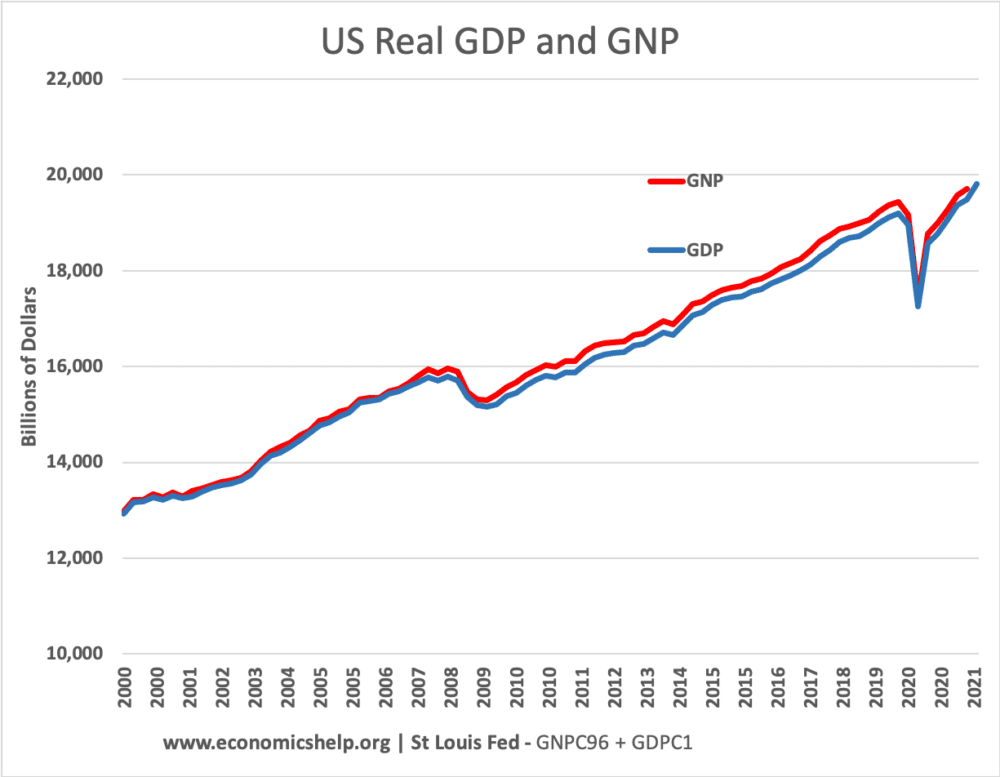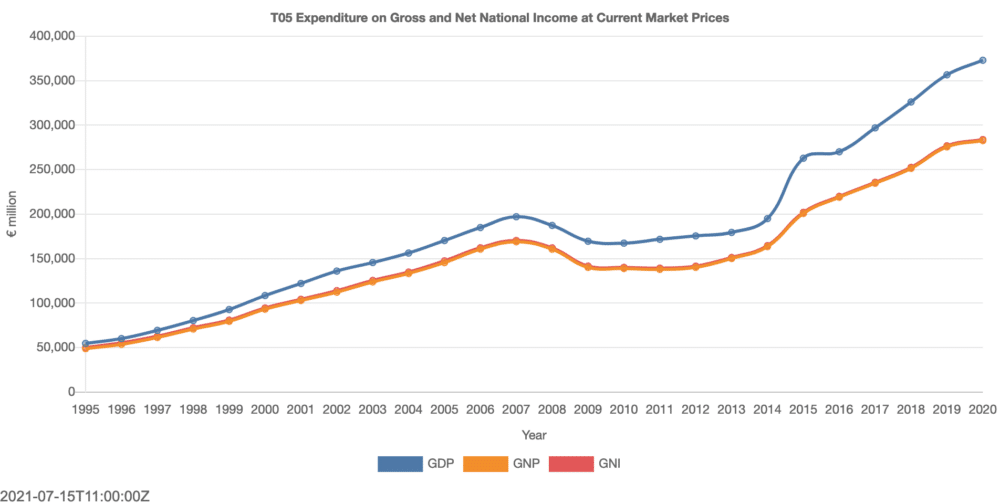GDP is gross domestic product – it is a measure of the total value of what is produced in an economy
GNP is gross national product – a measure of the total income that stays in an economy.
The difference is that GNP takes into account the net income flows (e.g. dividends) that are sent to other countries. GNP = GDP + net factor income
GNP
- GDP
- + factor income received from abroad
- – factor income sent abroad
Factor income is income from factors of production, land, labour and capital.
Explanation
Suppose a US multinational firm, Apple produces iPhones in China, then this output of phones will be included in China’s GDP. However, if Apple is profitable (e.g. $1bn), then it will send some back to the US. This $1bn will be included in US GNP but will be excluded from Chinese GNP.
If it was just this one example, US GNP would be $1bn higher than US GDP. China’s GNP would be $1bn lower than GDP

In the case of the US, net factor income is fairly close to zero. US companies have significant investment overseas and so gain dividends coming into US, but there are also many foreign companies investing in the US, which then repatriate profit outside the US. In the 2000s, GNP was slightly higher which suggest it was receiving more dividends than going out. But, the net factor income is low and the gap between GNP and GDP is correspondingly low.
Example of big difference between GNP and GDP
A good example, of a significant difference, is Ireland. In the 1990s, Ireland attracted significant foreign direct investment by offering low corporation tax rates to multinationals, such as Apple, Microsoft and Google. Production by these multinationals led to a rise in Irish GDP. However, the GDP became significantly higher than GNP because a significant proportion of their profit was later repatriated to the US.

Which is better guide to living standards – GDP or GNP?
In Ireland’s case, GNP is a more accurate reflection of economic welfare because the benefit of multinational production does not go to Irish citizens but foreign shareholders. Equally, a country may have very limited levels of production in its own county, but if citizens are benefiting from net profit transfers, national income will be higher than gross domestic product indicates.
Difference between GNI and GNP
GNI (Gross national income) is very similar to GNP. The difference is that GNI also includes financial transfers such as foreign aid, taxes and subsidies. In this example, Ireland receives farming subsidies from the EU (which increases GNI) but also pay membership cost to the EU (which decreases GNI). In practical terms, they are very similar. But, if a country were the recipient of substantial financial flows from EU or World Bank, GNI could be higher than GNP
